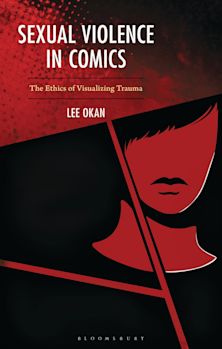- Home
- ACADEMIC
- Literary Studies
- Comics and Graphic Novels
- Comic Connections
This product is usually dispatched within 1 week
- Delivery and returns info
-
Free CA delivery on orders $40 or over
You must sign in to add this item to your wishlist. Please sign in or create an account
Description
With the popularity of comic adaptations on television and at the movies, these current topics can be a great way to engage students by bringing characters and stories they connect with into the classroom to help them build the skills that they need to be successful. Comic Connections: Reflecting on Women in Popular Culture is designed to help teachers from middle school through college find exciting new strategies that they can use right away as part of their curricular goals. Each chapter has three pieces: comic relevance, classroom connections, and concluding thoughts; this format allows a reader to pick-and-choose where to start. Some readers might want to delve into the history of a comic to better understand characters and their usefulness, while other readers might want to pick up an activity, presentation, or project that they can fold into that day’s lesson. This volume in Comic Connections series focuses on female characters—Wonder Woman, Peggy Carter, and Lois Lane, to name a few—with each chapter deconstructing a specific character to help students engage in meaningful conversations, writing projects, and other activities that will complement and enhance their literacy skills.
Table of Contents
Acknowledgements
Introduction: Reflecting on Women in Popular Culture
Sandra Eckard
Chapter 1: Stepping into the Role of Dynamic Protagonist:
The Evolution of Peggy Carter from Romantic Interest to Covert Operative
Mary T. Christel
Chapter 2: Wonder Woman: Reading and Teaching Feminism with an Amazonian Princess in an Era of Jessica Jones
P. L. Thomas
Chapter 3: Ms. Marvel as a New Kind of Superheroine: Analyzing Identity, Race, and Gender with Comics
Slimane Aboulkacem
Christopher Foster
Hannah R. Gerber
Ana Marcela Montenegro
Chapter 4: Who Am I? A Discovery of Self Through Comics with Buffy, the Vampire Slayer
Jennifer Marmo
Chapter 5: Elektra’s Cultural Power and Contradictions for Our Times
Michael D. Kennedy
Chapter 6: The Power of Potts and Pens: Women’s Roles in Iron Man and Superman
Sandra Eckard
Chapter 7: A Hero’s Journey for Diverse Women in Comics: Teaching Critical Visual Literacy Skills through Serenity and Parallel Texts Ms. Marvel, Buffy the Vampire Slayer, and Gotham
Margaret A. Robbins
Chapter 8: “I Think About That Story A Lot, Actually:” V for Vendetta and Philosophy in a Community College Reading Course
Joaquin Muñoz
Product details
| Published | Jan 11 2018 |
|---|---|
| Format | Hardback |
| Edition | 1st |
| Extent | 158 |
| ISBN | 9781475828047 |
| Imprint | Rowman & Littlefield Publishers |
| Dimensions | 240 x 157 mm |
| Publisher | Bloomsbury Publishing |
About the contributors
Reviews
-
Comic Connections: Reflecting on Women in Popular Culture provides a dynamic and complex look at paradoxes often faced by a diverse collection of female characters within comics. Contributing authors offer a range of teaching perspectives, including: K-12 classrooms, local community organizations, and institutes of higher education. All of whom contribute to the enlightenment as well as the empowerment of key social issues by taking a closer look at how these issues have changed over time through various reflective and critical literacy strategies that enable ‘agents of change’ beyond the classroom.
Rachel Kaminski Sanders, Language and Literacy Education, University of Georgia
-
This much-needed book highlights the important contributions that women have historically made to the comics industry, and to popular culture more generally, not only as authors and artists, but also as heroines of their own stories. By focusing on a diverse range of characters, from Wonder Woman to Peggy Carter to Buffy to Kamala Khan, the authors whose work is featured in this volume challenge readers to consider how women’s roles in comics have evolved to reflect changing gender norms, and how female characters have operated within the contexts of their respective story worlds to explore new ways of performing femininity. In doing so, the book offers educators access to a wealth of practical suggestions and activities they can use to support students as they learn to read popular culture texts critically and to center females in comics as deserving of close study in secondary and college classes.
Sean P. Connors PhD, associate professor, English Education, University of Arkansas



































